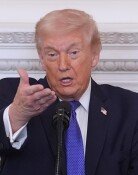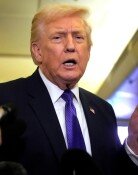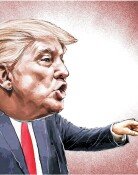PM nominee Lee Wan-koo needs to provide candid advice to Pres. Park
PM nominee Lee Wan-koo needs to provide candid advice to Pres. Park
Posted January. 24, 2015 08:18,
After his nomination was officially announced on Thursday, Prime Minister nominee Lee Wan-koo said, I will tighten and restore discipline in the government, strengthen communication with the opposition parties and the public and speak frankly to Park. Lee also renewed commitment to recognize and respect opposition parties as another pillar of the state affairs by putting opposition parties before the ruling party. The new nominee showed leadership and social skills to persuade the opposition to reach a consensus in the midst of sunken ferry Sewol stalemate. Considering his career path and backgrounds, it would be worth having expectation on Lees capability to do a good job in the state affairs or communication with the politics and the public. But it still remains uncertain whether he can be a prime minister who can speak frankly to the president.
When Lee was appointed as floor leader of the ruling Saenuri Party in May 2014, he said, I will give candid advice to the president. But Lee has never put the pledge into action. At a luncheon with President Park Geun-hye and the ruling party leadership on Dec. 7 last year, Lee seemed to focus on respectful treatment toward the president, such as referring to Park as honorable president three times without any bitter counsel, despite the political storm brought by the leakage of sensitive presidential document. Such attitude came in stark contrast to his past courageous stance, giving up the position of Chungnam province governor when he opposed to the revised plan of Sejong City project during the Lee Myeong-bak administration. If the new PM nominee keeps such subservient attitude, he probably become a prime minister who strengthens President Parks governing system surrounded by close aides, only to obey directions of the president without any outspoken advice.
Some forecast that the nominee who developed his career in the politics may easily pass the verification and ratification process by the National Assembly. As Lee has lots of experiences in public office, he may be able to demonstrate good performance as a responsible prime minister based on such in-depth experiences. If Lee is approved as prime minister, pro-Park troika system is established in which prime minister, deputy prime minister for economic affairs and deputy prime minister for social affairs all served as the ruling party chairman and floor leader. If they collaborate and coordinate well, it would be the best combination to strike a balance between the state affairs and the politics, while complementing President Parks lack of communication. However, if three ministers start a tug of war standing on pride, therein lies a risk to make the worst combination.
Currently, Saenuri Party Chairman Kim Moo-sung is considered as the most promising candidate for the next presidential election. Some analyze that nomination of Lee, who is from Chungcheong provinces, is a groundwork to keep Kim in check and raise a presidential candidate who represents the pro-Park faction. If nominee Lee tries to take the prime ministerial office as a springboard to become a presidential candidate, it would generate conflict with the ruling party leader and more serious counter-attacks from the opposition parties. If Lee is ratified as prime minister, it would be better for him to devote to duties of the prime minister. That would be better for his future in the political arena.







